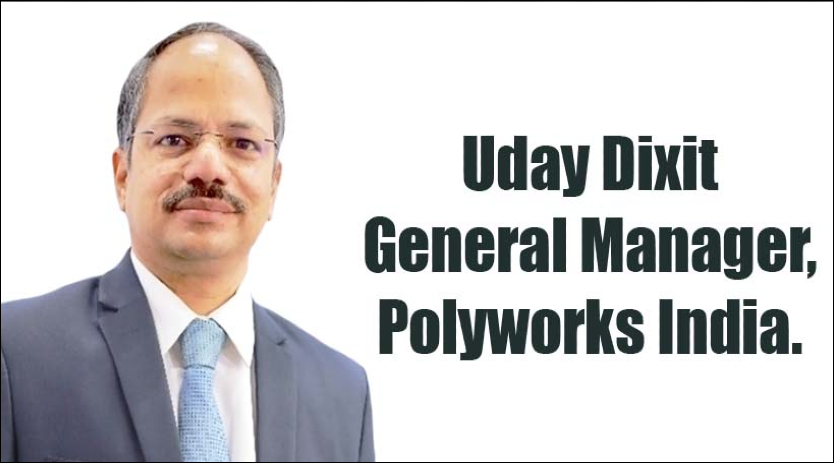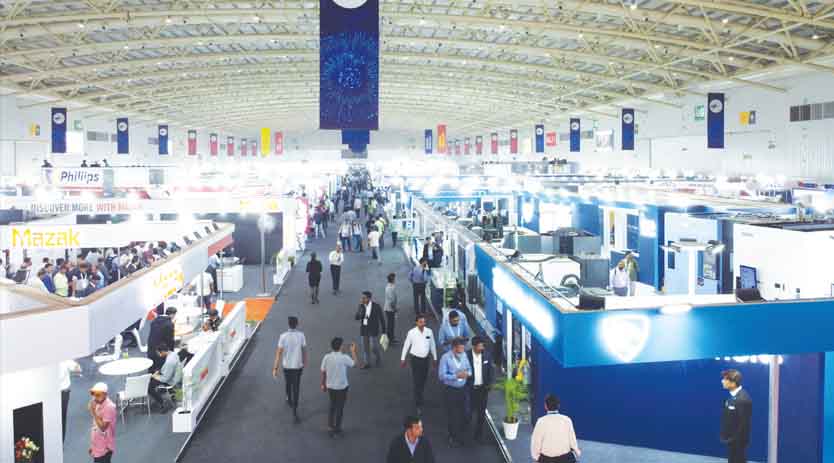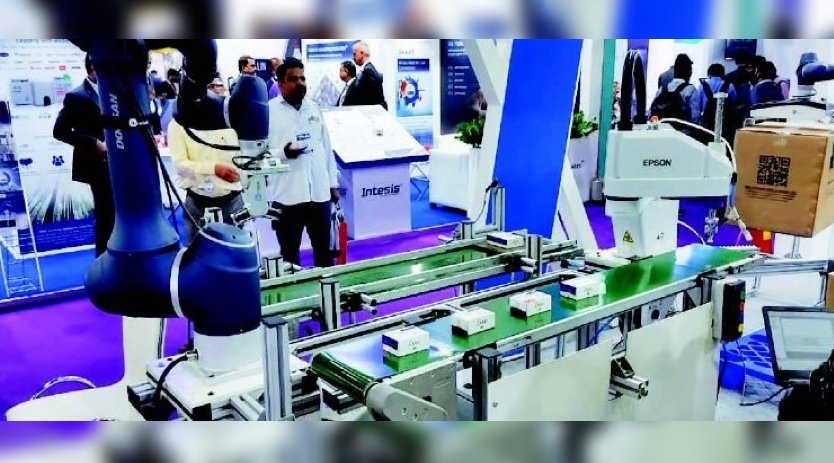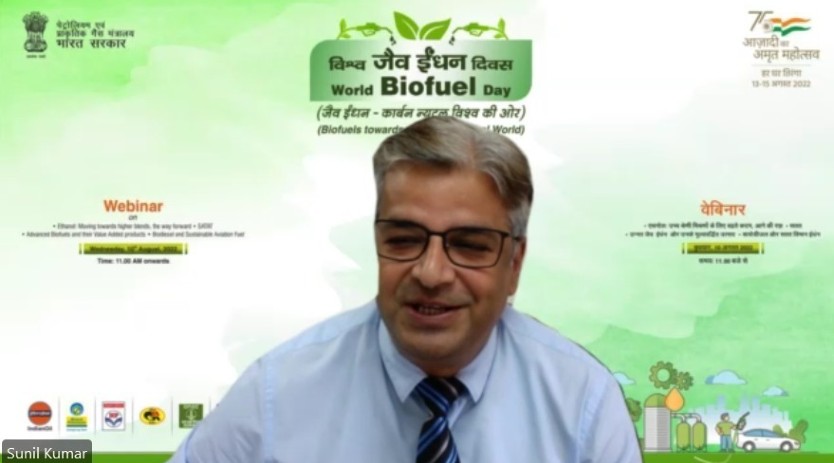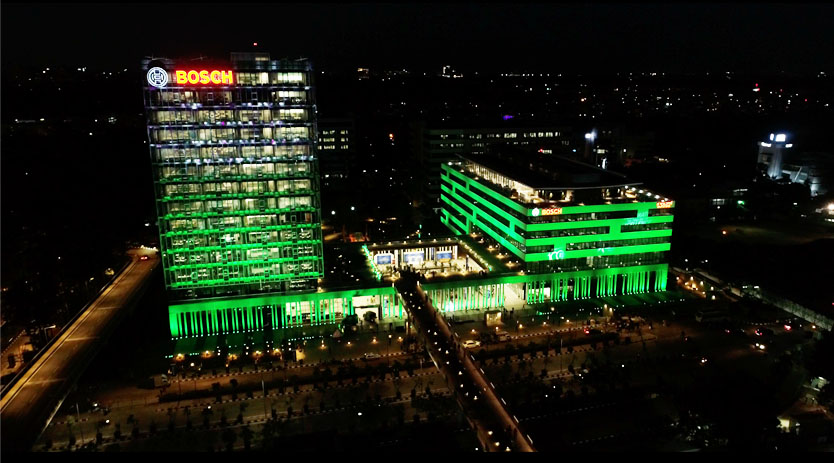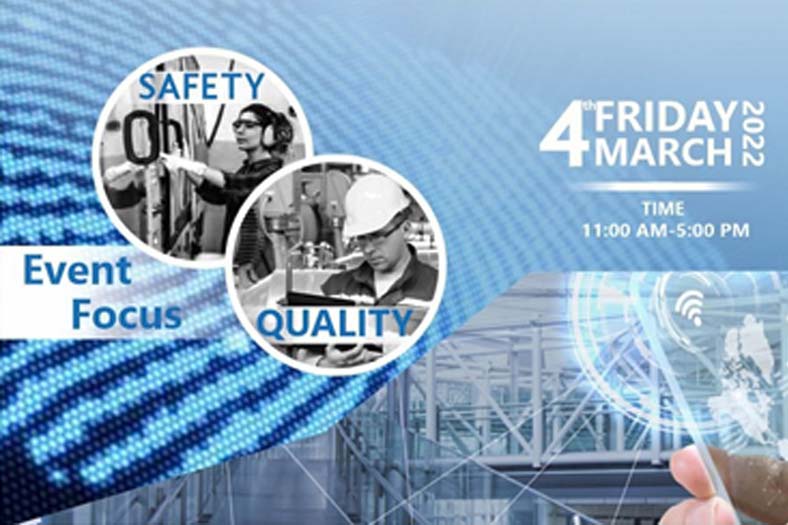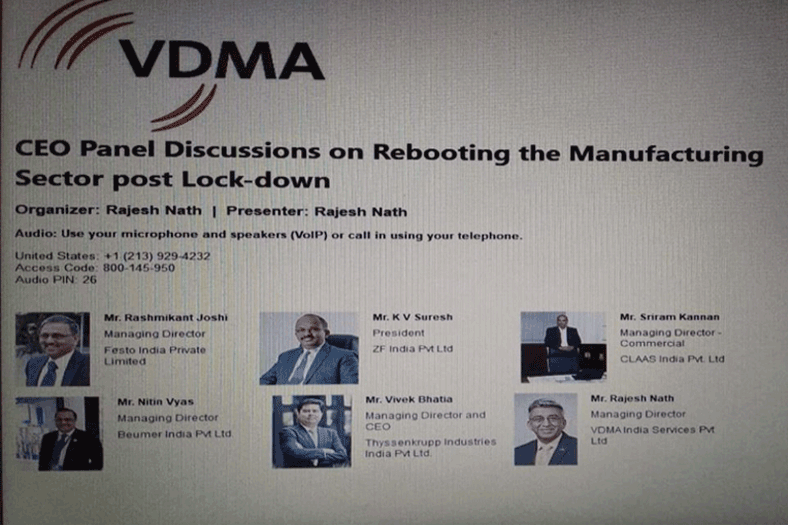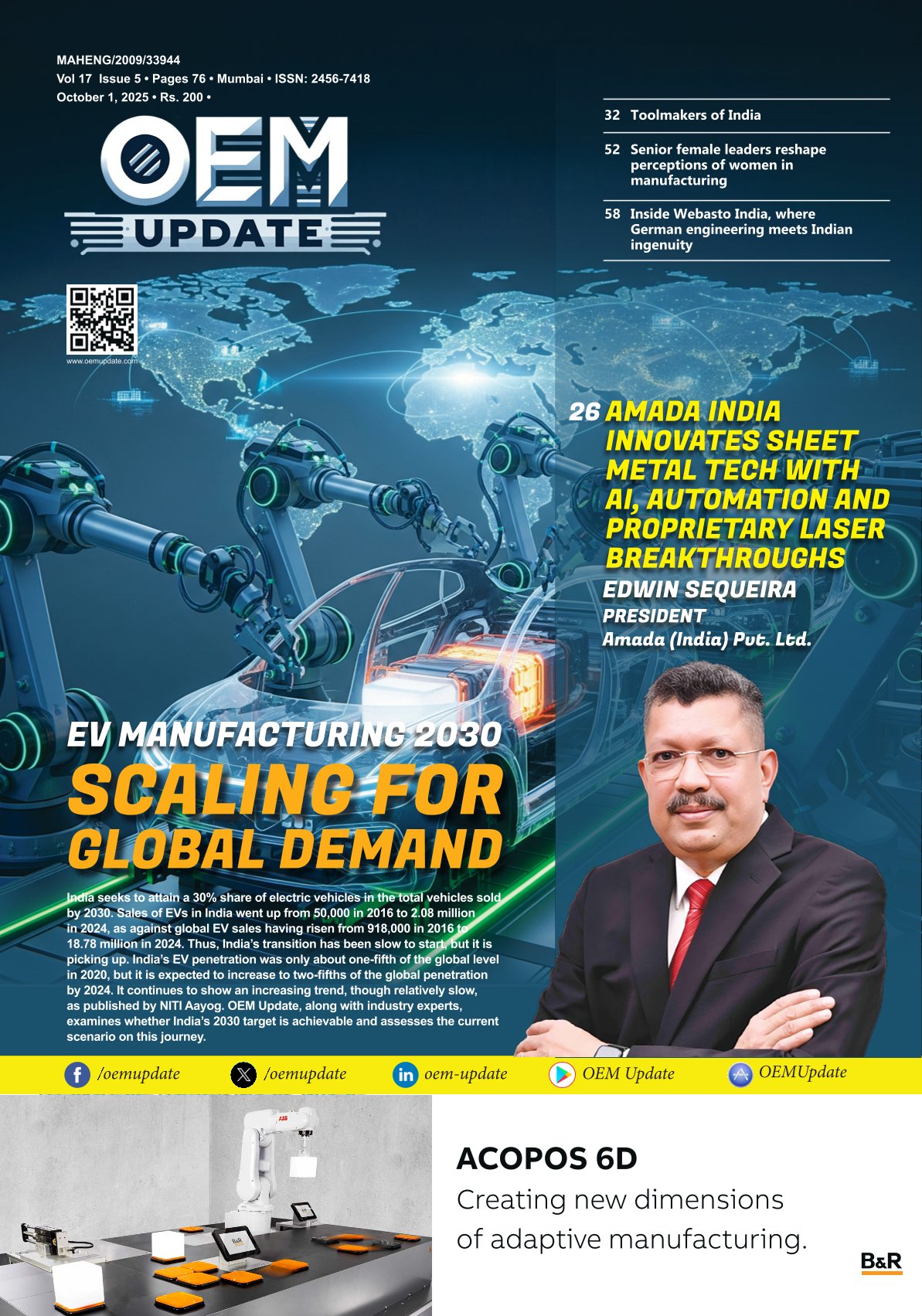Outrun with Energy Efficiency
By Staff Report October 15, 2025 5:20 pm IST
ABB India organised a high-level stakeholder roundtable in New Delhi on the theme “Outrun with Energy Efficiency.” The roundtable brought together policymakers, industry representatives, and technology experts to discuss the global role of energy efficiency in the manufacturing sector. It was also touted as India’s fastest and most cost-effective route to achieve its net-zero ambitions while improving industrial competitiveness.
ABB India held a stakeholder roundtable called “Outrun with Energy Efficiency” on August 20, 2025, in New Delhi. The event brought together customers, partners, policymakers, and industry leaders to broadcast energy efficiency as an important factor for industrial competitiveness and India’s net-zero goals.
The discussions focused on generating practical insights to help India achieve its climate commitments while ensuring productivity and profitability for businesses. While renewable energy remains essential, energy efficiency was identified as the quickest, most cost-effective, and cleanest solution to tackle climate change and enhance industrial competitiveness.
Participants emphasised that energy efficiency is more than a technical solution – it is an imperative that requires collaboration across industries. Key challenges, such as a lack of awareness and a tendency to prioritise initial capital expenditure over the long-term total cost of ownership were also discussed. The roundtable concluded with a shared vision of a “smart, sustainable, and digitally empowered India” where businesses can achieve sustainability goals while gaining a competitive edge.
Opening remarks & keynote insights
Amit Gupta, Division President – Motion Services, ABB India Ltd., opened the discussions by aligning industry goals with national climate objectives. He highlighted ABB’s 75-year presence in India and its strong integration into the ecosystem through sectors like railways, mobile phone manufacturing, and data centres. ABB has reduced GHG emissions at its manufacturing sites by more than 80% since 2019 and now operates fully on renewable electricity. Gupta also reiterated ABB’s commitment to India’s Panchamrit goals and the importance of collective action.
Erich Labuda, Global Division President of Motion Services at ABB Ltd., delivered the keynote, pointing to the slow global progress toward Paris Agreement climate targets. He emphasised that while renewables are vital, they are not scaling fast enough to meet immediate goals. Energy efficiency, referred to by the International Energy Agency as the “first fuel,” offers speed, cost-effectiveness, and reliability. Labuda outlined three reasons for prioritising energy efficiency: better power quality and grid stability, gaining business competitiveness, and fulfilling a moral responsibility to future generations. He noted that industrial sectors, particularly electrical motors, HVAC, and infrastructure, offer the greatest opportunities, with the real barrier being a lack of awareness rather than a lack of technology.
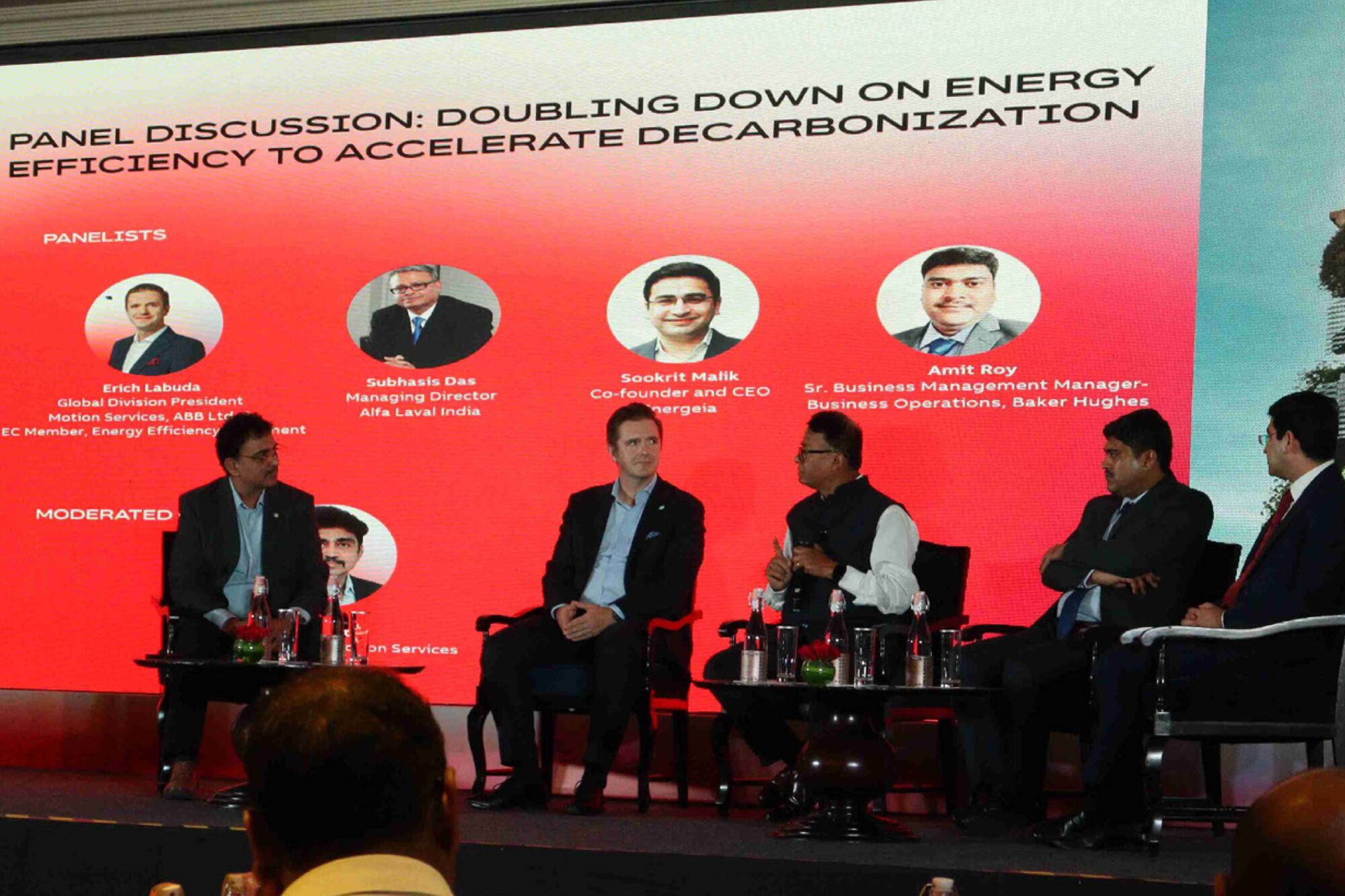
Perspectives on policy and market adoption
Dr Satish Kumar, President and Executive Director of the Alliance for an Energy Efficient Economy (AEEE), also extended the concept of energy efficiency as the “first fuel.” Drawing on insights from the G20 Presidency, the adoption of IE4 and IE5 motors with Variable Frequency Drives (VFDs) was a major recommendation. Dr Satish coined the phrase, “Make technology in India to save energy for India,” emphasising India’s inherent potential to become a manufacturing hub for high-efficiency components. He also highlighted the long-term importance of green procurement policies and stricter energy conservation regulations. India saved 1.3 gigatons of CO2 emissions from 2017 to 2023. The target for 2030 aims to double this achievement.
Sanjeev Arora, President of Motion Business at ABB India Ltd., explained ABB’s integration of sustainability into its operations. He pointed out that over 80% of India’s installed motors are inefficient IE2 models, and replacing them with modern IE3 or IE4 motors and drives could reduce energy consumption by 20-25%. He noted that the ‘cleanest energy’ is actually the energy that is saved. Over 50% of ABB’s motor production in India now comprises IE3 and IE4 models, demonstrating market intent even before policy mandates. Arora also highlighted the financial prudence of considering lifecycle costs, as the return on investment is typically realised within just a few years.
Key insights from Panel Discussions
The event featured two panel discussions: ‘Doubling down on Energy Efficiency to Accelerate Decarbonisation’ and ‘Driving India’s Industrial Competitiveness through Energy Efficiency.’
Discussions highlighted that energy efficiency requires a mindset shift, as barriers often stem from a lack of awareness and inertia. Energy efficiency must become a key cultural value in companies. Dr Satish Kumar outlined a roadmap for businesses: building leadership, adopting global standards such as ISO 50001, and improving technology, financing, and capacity. Dr Gaurav Mishra from the Ministry of New and Renewable Energy highlighted the success of the government’s PAT (Perform, Achieve, and Trade) scheme in decoupling economic growth from energy demand.
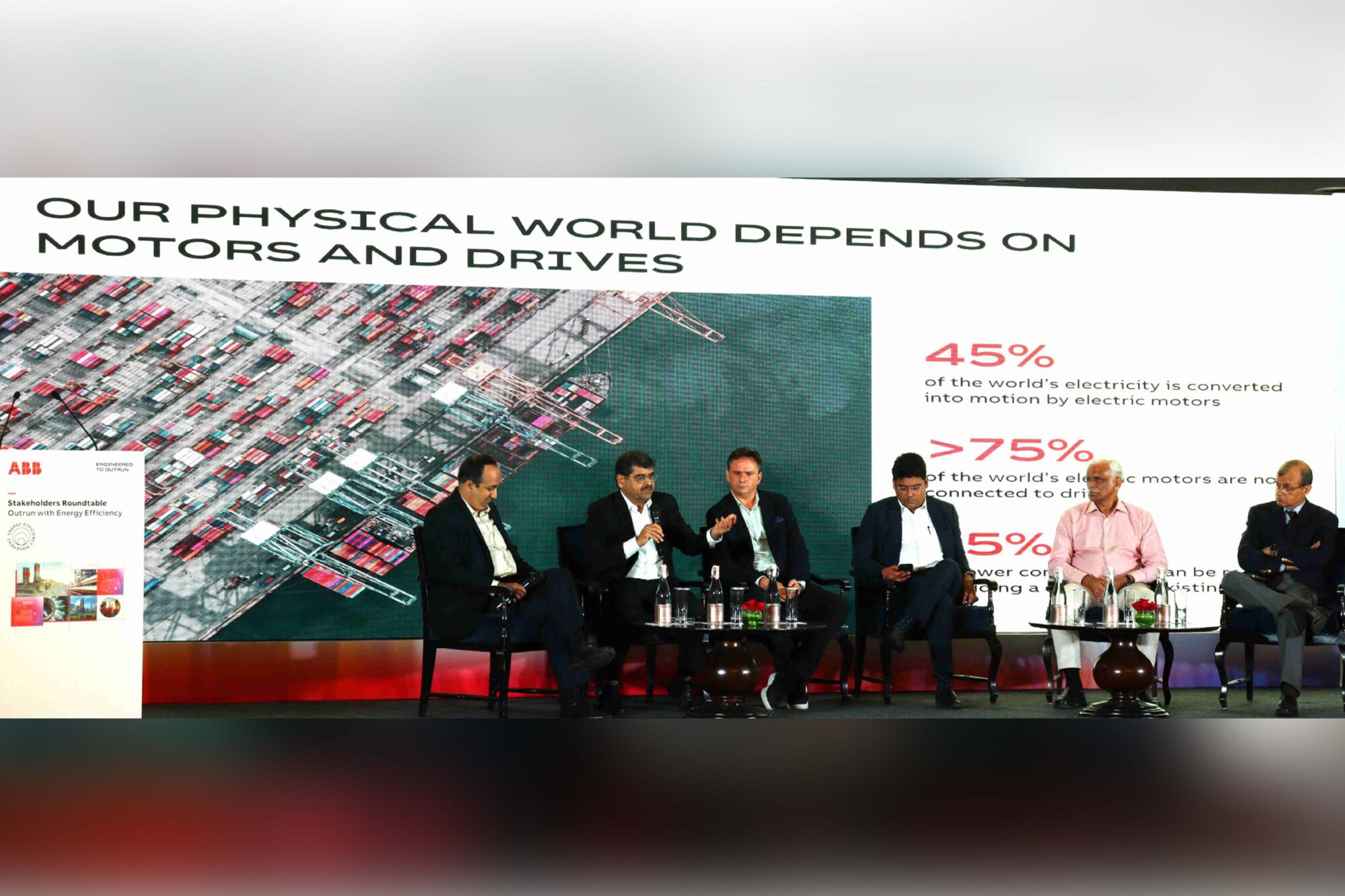
The session brought forward diverse opportunities from across the sectors. Amit Roy (Baker Hughes) spotlighted advancements in electrification, hydrogen, and carbon capture, shaping the oil & gas sector. Sunil Singhal (Chemical Systems) shared a compelling sugar industry case study, demonstrating over 50% reduction in steam consumption through cogeneration. Sanjeev Arora (ABB India) underlined the vast potential of replacing outdated IE2 motors, while Sukrit Malik (Energeia) addressed the hurdles of accessing clean, standardised factory data and showed how digitalisation and AI-driven tools can unlock high-ROI projects.
The panellists agreed that technology, if applied intelligently, will be the true game-changer. Digitalisation and AI can transform vast datasets into actionable insights, enabling industries to optimise energy use and accelerate their sustainability journey.
Conclusion
The roundtable highlighted the dual role of energy efficiency as both a critical environmental action and an economic driver. As India’s energy needs and economy continue to grow, adopting efficiency-first practices can ensure industrial competitiveness while advancing net-zero goals. Closing the knowledge gap, shifting the focus from upfront capital costs to total lifecycle value, and fostering collaboration across stakeholders will be key to building a smart, sustainable, and resilient India.
Cookie Consent
We use cookies to personalize your experience. By continuing to visit this website you agree to our Terms & Conditions, Privacy Policy and Cookie Policy.





